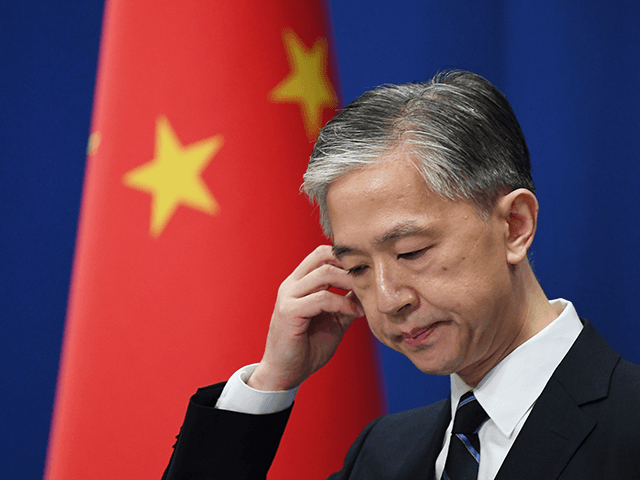Amazon founder and Washington Post owner Jeff Bezos criticized a fellow billionaire’s purchase of a media company on Tuesday by wondering if Communist China might use economic pressure against Elon Musk to gain “a bit of leverage” over Twitter. The Chinese Foreign Ministry brusquely labeled such ideas as “speculation … without any factual basis.”
Bezos ventured this theory on Twitter while quoting another user’s summary of Musk’s business interests in China, speculating the Chinese government could threaten the sale or manufacture of electric cars from Musk’s Tesla corporation to pressure him into changing Twitter policies.
“Interesting question. Did the Chinese government just gain a bit of leverage over the town square?” Bezos mused.
Interesting question. Did the Chinese government just gain a bit of leverage over the town square? https://t.co/jTiEnabP6T
— Jeff Bezos (@JeffBezos) April 25, 2022
Bezos immediately walked this speculation back with a classic “just asking questions” rhetorical dodge.
“My own answer to this question is probably not,” he wrote. “The more likely outcome in this regard is complexity in China for Tesla, rather than censorship at Twitter.”
“But we’ll see. Musk is extremely good at navigating this kind of complexity,” he concluded.
Asked about suggestions that China could “exercise leverage over Tesla” to “influence the content on Twitter” at his Tuesday morning press conference, Chinese Foreign Ministry spokesman Wang Wenbin dismissed the theory and chastised the reporter from Reuters for asking about it.
“I can tell you are very good at speculating, but without any basis,” Wang said.
Wang refused further comment when Reuters asked for the Chinese government’s opinion of Musk purchasing Twitter, and grew annoyed when asked if China might allow its people to begin using Twitter now that Tesla’s owner has purchased it.
“That’s a lot of guesswork without any factual basis,” he snapped at the persistent journalist.
Bezos is not well-situated to cast stones in this particular glass house. Not only has he used the far-left Washington Post to aggressively influence American politics — recently including a nauseating abuse of journalistic ethics to conduct a character assassination against a Twitter user whose politics the Left severely dislikes — but Amazon has complied with Chinese censorship demands in at least one documented instance by deleting negative reviews of a book by dictator Xi Jinping.
However, it is true that Tesla has both industrial assets and a valuable market in China, and the Chinese Communist Party does not hesitate to use such leverage to threaten Western corporations into compliance with its speech codes, a practice known as “sharp power” to position it between the soft power of diplomacy and the hard power of military force.
Some of China’s most appalling abuses of sharp power have involved Twitter, which is banned for Chinese subjects — they are forced to use a similar, tightly-controlled platform called Sina Weibo.
Twitter is available to Communist officials, who use it to spread Chinese propaganda around the world. Chinese officials have inexplicably been allowed to use Twitter to manipulate political narratives and spread blatant disinformation without running afoul of the platform’s vaunted content police.
Musk has publicly praised the Chinese Communist government, a far greater global enemy to freedom of speech than Twitter’s content police on their worst day. On at least one documented occasion, Tesla asked Beijing to use its vast censorship powers to stifle criticism of the company’s products, raising concerns in Washington about the company’s relationship with the Chinese state.
Musk effusively thanked the Chinese for allowing his Tesla “gigafactory” in Shanghai to reopen last week, after three weeks of coronavirus shutdown. In January, Tesla shocked and dismayed human rights activists by opening a showroom in Xinjiang, home of the oppressed and enslaved Uyghur Muslims.
Tesla is now producing a record volume of cars in China, many of them for local consumption, as China accounted for almost half of Tesla’s global sales last year. Analysts credited Tesla’s production and sales in China with helping it avoid supply-chain problems and perform better than other electric vehicle manufacturers during an industry-wide slump in the first quarter.

COMMENTS
Please let us know if you're having issues with commenting.